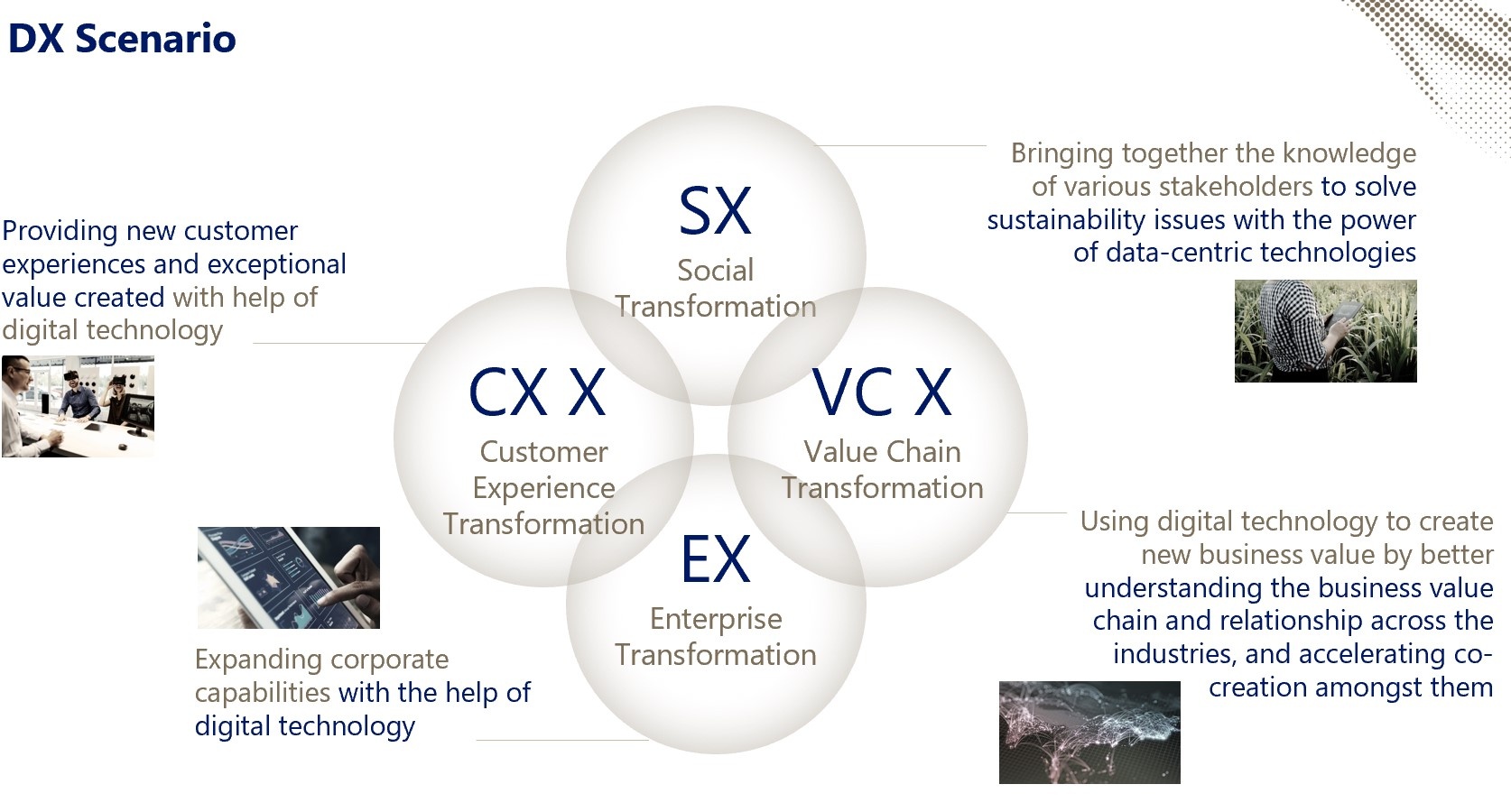ABeam Consulting: Don’t let digital transformation be a burden for your business
Digital transformation is never easy, even for large enterprises. A typical example is the case of Ford Smart Mobility. Established in 2016 with financial backing from auto giant Ford, the project is expected to be a great success.
However, smart mobility technology does not integrate with most of the rest of the Ford ecosystem. Ford Smart Mobility headquarters is not only located far away but also operates independently from other business units.
After just one year, Ford Smart Mobility reported a staggering loss of $300 million. The stock price plummeted, leading to the departure of the former Ford CEO.
Five core principles of digital transformation
The fear of missing out, as well as the burning desire to achieve instant success, has led many businesses to hastily embark on their digital transformation journey without proper due consideration and a thought-out process of what is suitable for them in order to benefit from their digital transformation gains.
 |
| Tan Swee Woon - Strategy director of ABeam Consulting for Thailand and Vietnam |
To avoid falling into unnecessary and avoidable potential pitfalls in their digital transformation journey, Tan Swee Woon, Strategy director of ABeam Consulting for Thailand and Vietnam who has gathered extensive experience across varied clients’ digital transformation projects opined that businesses should pay attention to five core principles to ensure a strategic approach is being taken and learn from businesses that have heeded and benefited from these valuable principles and emerging with successful digital transformation outcomes and impact.
The first principle is to focus on long-term goals. “Effective transformation can sometimes take a rather long time to complete which can overwhelm and discourage some businesses. It is easy to fall into the trap of seeking short-term projects to create some visible impact but it’s even more critical to focus on the objective and importance of creating value,” explained Tan.
| Digital transformation is a mandatory journey that any business must undertake in order to survive and develop. |
Second, businesses will need to plan and prepare carefully before embarking on their very own digital transformation journey and always have the larger picture in mind. “Failing to prepare is akin to preparing to fail,” as reinforced by Tan. “Enterprises should organise a focused and dedicated digital transformation team with the necessary expertise to lead the transformation efforts, actively share useful knowledge and learnings as well as facilitate other departments to onboard together on the journey and set themselves up for success.”
Third, businesses should not solely prioritise technology over customer experience. Businesses often adopt popular technologies just because they think they are supposed to (such as AI or blockchain), where these technologies might have no strategic value to their business at all. It is better to start small, be strategic, and use data to measure what works and what can be improved.
Fourth, the transformation process will need strong involvement and participation across the whole enterprise spanning from operations, sales, and marketing to human resources, finance activities, and more. Businesses need to realise the depth and breadth of effective digital transformation implications, and the importance of helping stakeholders understand the roles they play and contribute in the larger scheme of things.
“The last and final principle is that businesses need to be agile and continuously reiterate to improve and optimise, especially from learnings along their digital transformation journey. Effective and impactful digital transformations are never truly finished. Technology evolves constantly and so should businesses make further strides in order to thrive,” as Tan summarised concisely in his sharing and recommendations.
Four pillars of digital transformation
Ryohei Oda, managing director of ABeam Consulting, recommends that businesses should look at four areas on their digital transformation journey (see graphic), including digital transformation in Enterprise Transformation (EX), Social Transformation (SX), Value Chain Transformation (VCX), and Customer Experiences Transformation (CX). In doing so, businesses can identify problems in the industry, prepare a digital transformation strategy, and build a sustainable digital business model for the future.
 |
Usually, businesses only focus on the surface such as operating processes and value chains, yet pay little attention to other areas. The inconsistent implementation creates vulnerabilities during the transition.
As a global enterprise with many years of experience in consulting and supporting successful digital transformation partners, ABeam Consulting, with extensive experience in implementation, has been providing a comprehensive set of solutions in all four areas, helping businesses to manage risks efficiently in this challenging journey.
Digital transformation is a mandatory journey that any business must undertake in order to survive and develop. “Digital transformation can help businesses gain competitive advantages while bolstering efficiency. The essential goal is to deliver relevant new value.
This is essential in today's rapidly changing business environment, where customers re-evaluate priorities and change habits,” said Ryohei Oda, managing director of ABeam Vietnam. “For successful digital transformation, businesses need to take wise steps right from the start so as not to waste time and resources.”
 | Localities accelerate digital transformation in tourism Localities nationwide are accelerating digital transformation to create breakthroughs in the tourism sector. |
 | Banking industry steps up digital transformation The pandemic has been prompting banks to adapt. As digital transformation has become inevitable, banks have stepped up their efforts to adopt more new technologies in the digitalisation race. |
What the stars mean:
★ Poor ★ ★ Promising ★★★ Good ★★★★ Very good ★★★★★ Exceptional
 Tag:
Tag:
Related Contents
Latest News
More News
- PM outlines new tasks for healthcare sector (February 25, 2026 | 16:00)
- Ho Chi Minh City launches plan for innovation and digital transformation (February 25, 2026 | 09:00)
- Vietnam sets ambitious dairy growth targets (February 24, 2026 | 18:00)
- Masan Consumer names new deputy CEO to drive foods and beverages growth (February 23, 2026 | 20:52)
- Myriad risks ahead, but ones Vietnam can confront (February 20, 2026 | 15:02)
- Vietnam making the leap into AI and semiconductors (February 20, 2026 | 09:37)
- Funding must be activated for semiconductor success (February 20, 2026 | 09:20)
- Resilience as new benchmark for smarter infrastructure (February 19, 2026 | 20:35)
- A golden time to shine within ASEAN (February 19, 2026 | 20:22)
- Vietnam’s pivotal year for advancing sustainability (February 19, 2026 | 08:44)



























 Mobile Version
Mobile Version